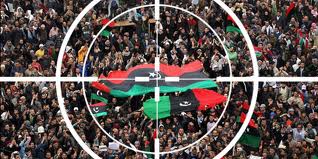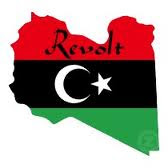A North Korean Foreign Ministry official put out a statement criticizing the air assault on Libyan government forces and suggesting that Libya had been duped in 2003 when it abandoned its nuclear program in exchange for promises of aid and improved relations with the West. Calling the West’s bargain with Libya “an invasion tactic to disarm the country,” the official said it amounted to a bait and switch approach. “The Libyan crisis is teaching the international community a grave lesson,” the official said, proclaiming that North Korea’s “songun” ideology of a powerful military was “proper in a thousand ways” and the only guarantor of peace on the Korean Peninsula.
I am quite sure they watched the attacks in Libya this week with mixed feelings. First, of course, is the fear that must have come when watching people raise up and throw off a tyrant and enjoying world approval and support in doing it. The second, unfortunately, must be satisfaction that they have a huge military and –that they have a nuclear weapons program to discourage interference in such an uprising by the West. North Korea is believed to have 8 to 12 nuclear weapons and last year disclosed a new uranium-enrichment plant.
The Koreans see the Libyan situation as at least the third instance in two decades to offer proof that they did something right while others failed and ultimately paid the price --the Soviet Union’s decision to end the arms race and to abandon the political option to use their weapons of mass destruction, --Iraq’s agreement to accept United Nations nuclear inspectors and monitors, --and now, Libya.
To the North Korean leadership all three countries took the economic bait, foolishly disarmed themselves, and once they were defenseless, were punished by the West. Now, of course, anyone in the senior North Korean leadership who favored denuclearization will now be silent on the issue.
The United States said there was no link between Libya’s abandonment of efforts to develop nuclear arms and other weapons and the current military campaign by Western nations. “Where they’re at today has absolutely no connection with them renouncing their nuclear program or nuclear weapons,” said Mark Toner, a State Department spokesman. I believe that. I think watching Saddam on road to the gallows had a lot more to do with Kaddafi's decision to drop his program than anything else...
The comments by the North Korean official don’t look good for chances for a renewal of the six-party talks on the dismantling of North Korea’s atomic program. The talks ended in 2009 when North Korea withdrew, angry over international sanctions that followed a long-range missile test. The two Koreas, the United States, China, Russia and Japan are the participants in the six-party process, which began in 2003. China, North Korea’s only major ally, has served as the host country and may be the only country in the world with any ability to influence the mentally challenged regime.
Live Long and Prosper...























